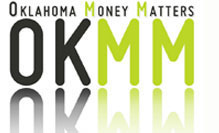ID Theft
Identity theft occurs when someone uses your personal information, like your name, Social Security number (SSN) or credit card number, without your permission to commit fraud.
To avoid being a victim, take special precautions to keep your personal information safe.
::Online::
- Don’t be too social. Watch what you post on social networking sites like Facebook, Twitter and Instagram. Sharing your birth date, mom’s maiden name, pet’s name or even your school mascot could give thieves valuable information.
- Guard your information. Don’t share your personal information through email or on the internet unless you initiate the inquiry. Your bank, credit union or credit card company will never ask you to verify your account information by email.
- Be password savvy. Create hard to break passwords with a mix of characters and numbers, and avoid obvious information like your birth date, name or phone number.
- Check your credit report. One of the quickest and easiest ways to guard against identity theft is to routinely check your credit report. Thieves often target young adults who have relatively little credit history and are less likely to check their credit report. Visit AnnualCreditReport.com to get your free report from each of the three major consumer reporting agencies.
::In-Person::
- Keep personal documents safe. If you live in a community setting, like a dorm, or fraternity or sorority house, store personal papers, like your birth certificate, Social Security card, transcripts and financial aid forms, in a fireproof and waterproof lock box. These are relatively inexpensive to purchase and available from a variety of stores.
- Shred unnecessary documents. Invest in a cross-cut shredder and destroy all unnecessary documents that contain personal information. This could include old bank statements, unused deposit slips, ATM receipts, pay stubs, credit card offers and many other items.
- Protect your SSN. It’s never a good idea to carry your Social Security card in your purse or wallet. Store it with your other important paperwork in a safe or fireproof lockbox.
- Stop junk mail. Opt out of receiving pre-approved credit and insurance offers by calling 888.567.8688 or visiting OptOutPrescreen.com, a service run by the consumer reporting agencies.
- Go paperless. Switch to online bill payment methods to eliminate your paper trail. Easy, 24-hour account access will allow you to more closely monitor your account and respond faster to fraudulent charges.
::Already a Victim?::
If you’ve been a victim of identity theft, act fast. Follow these steps to limit the damage.
- Place a fraud alert on your credit reports. Fraud alerts prevent a thief from opening more accounts in your name.
- Close the accounts that have been tampered with or opened without your knowledge.
- File a complaint with the Federal Trade Commission.
- File a police report.
For detailed information about each step, visit IdentityTheft.gov



